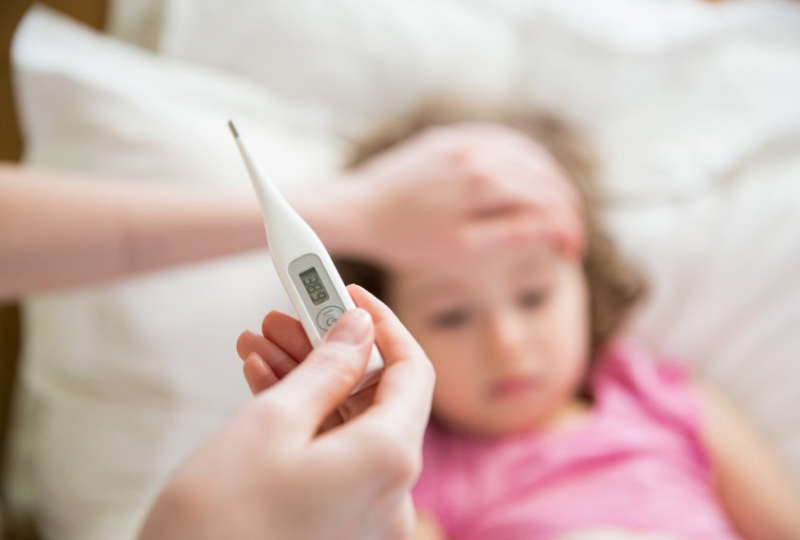Fever
If your body temperature increases over the typical range of 97.6–99.6°F (36–37°C), you have a fever. Fevers are common in a variety of conditions and are your body's natural defense against infection.
The rise in temperature is caused by pyrogens, which are fever-producing substances. Your immune system or the pathogenic bacterium that has entered your body releases them. They cause a fever by sending messages to your brain that make it to think your body is cooler than it actually is. As a result, your body produces more heat and loses less heat, causing your temperature to rise. This rise in temperature causes your white blood cells to become more active, which helps in the battle against infection.












